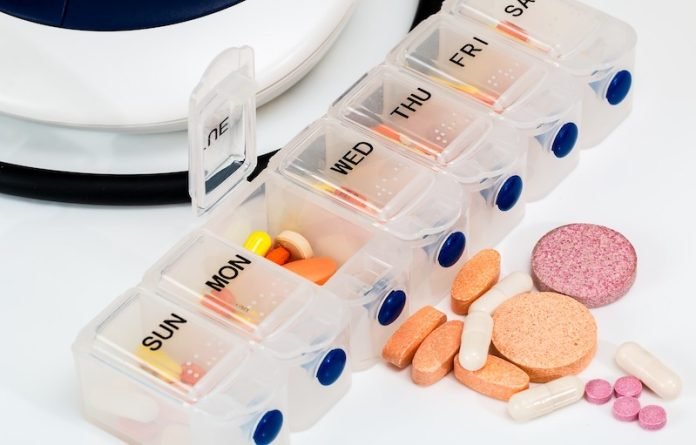
Psoriasis is a skin disease that affects many people around the world.
According to the Mayo Clinic, it is a chronic inflammatory condition that causes red, itchy scaly patches on the skin, most commonly on the knees, elbows, trunk, and scalp.
Unfortunately, there is currently no cure for psoriasis, but treatment options are available to help manage the symptoms.
A recent study conducted by scientists at Ewha Woman’s University found a potential link between high blood pressure medications and the development of psoriasis.
The researchers reviewed data from 13 studies and found that several types of antihypertensive drugs, including angiotensin-converting-enzyme inhibitors, beta-blockers, calcium-channel blockers, and thiazide diuretics, may increase the risk of developing psoriasis.
The scientists proposed several mechanisms by which blood pressure medications could affect an individual’s risk of developing psoriasis.
They suggest that these drugs may alter the immune system’s response or affect the skin’s barrier function, making it more susceptible to inflammation and skin disorders.
The findings of this study suggest that patients who take antihypertensive drugs should be carefully monitored for the development of psoriasis.
This information could help doctors and patients make informed decisions about managing high blood pressure and psoriasis.
Psoriasis is a chronic disease that tends to go through cycles, with symptoms flaring up for a few weeks or months, then subsiding or going into remission.
The disease is thought to be caused by problems with the immune system, and triggers can include infections, stress, and cold weather.
Treatment for psoriasis aims to remove scales and stop skin cells from growing too quickly. There are several options available, including topical ointments, light therapy, and medication.
These treatments can help manage the symptoms of psoriasis and improve the quality of life for people living with this condition.
In conclusion, psoriasis is a chronic skin condition that affects many people around the world.
A recent study from Ewha Woman’s University highlights a potential link between high blood pressure medications and the development of psoriasis.
It is important for patients who take these drugs to be carefully monitored for the development of skin conditions.
There are several treatment options available for psoriasis, and managing high blood pressure can also help improve overall health and quality of life.
High blood pressure drugs, also known as antihypertensive drugs, are medications used to treat hypertension or high blood pressure.
Hypertension is a chronic condition that affects many people around the world and can increase the risk of heart disease, stroke, and other health problems.
There are several types of high blood pressure drugs available, including:
Angiotensin-converting enzyme (ACE) inhibitors: These drugs help relax blood vessels and lower blood pressure by blocking the production of a hormone called angiotensin II.
Beta-blockers: These drugs work by reducing the heart rate and decreasing the force of the heart’s contractions, which helps lower blood pressure.
Calcium-channel blockers: These drugs help relax blood vessels and decrease the amount of calcium that enters the heart and blood vessel walls, which helps lower blood pressure.
Diuretics: These drugs help the body get rid of excess salt and water, which can help lower blood pressure.
Renin inhibitors: These drugs work by blocking the production of renin, a hormone that helps regulate blood pressure.
Alpha-blockers: These drugs help relax blood vessels and reduce the resistance to blood flow, which helps lower blood pressure.
It is important to note that different people may respond differently to different types of high blood pressure drugs, and it may take some trial and error to find the right medication or combination of medications that work best for an individual.
Additionally, high blood pressure drugs may have side effects, and patients should always consult with their healthcare provider before starting or changing any medications.
It is also important to maintain a healthy lifestyle, including a balanced diet, regular exercise, and stress management, to help manage high blood pressure and improve overall health.
If you care about high blood pressure, please read studies about how fasting may help reverse high blood pressure, and this olive oil could reduce blood pressure in healthy people.
If you care about skin health, please read studies about eating fish linked to higher risk of skin cancer, and Vitamin B3 could help prevent skin cancers.
The research was published in the British Journal of Clinical Pharmacology and conducted by Hye Sun Gwak et al.
Copyright © 2023 Knowridge Science Report. All rights reserved.



